
The Enchanting Hot Springs of Pagosa Springs
Nestled in the heart of the San Juan Mountains, Pagosa Springs is a charming town known for its spectacular hot springs and stunning natural beauty. The city offers a serene escape for those looking to unwind in nature’s embrace. The geothermal waters here are some of the hottest in the world, and numerous spas and resorts make it easy to soak in their therapeutic benefits. Outdoor enthusiasts will find a paradise in Pagosa Springs, with ample opportunities for hiking, fishing, and skiing. The nearby Wolf Creek Ski Area boasts some of the heaviest snowfall in Colorado, providing excellent conditions for winter sports. During the warmer months, the town’s extensive network of trails invites hikers and bikers to explore the lush forests and scenic mountain vistas. The town itself is steeped in history and culture, with an array of quaint shops, local restaurants, and art galleries to explore. The friendly locals and laid-back atmosphere create a welcoming environment for visitors. Don’t miss the chance to stroll along the San Juan Riverwalk, which offers picturesque views and a tranquil setting right in the heart of the town.
Local tips in Pagosa Springs
- Visit the hot springs early in the morning or late in the evening to avoid crowds and enjoy a more peaceful experience.
- Bring layers of clothing, as the weather can change rapidly in the mountains.
- Check out the local farmers' market for fresh produce and handmade crafts from the region.
- If you’re visiting in winter, consider renting a 4WD vehicle to navigate snowy roads safely.
- Book your accommodations in advance, especially during peak tourist seasons like summer and winter holidays.
The Enchanting Hot Springs of Pagosa Springs
Nestled in the heart of the San Juan Mountains, Pagosa Springs is a charming town known for its spectacular hot springs and stunning natural beauty. The city offers a serene escape for those looking to unwind in nature’s embrace. The geothermal waters here are some of the hottest in the world, and numerous spas and resorts make it easy to soak in their therapeutic benefits. Outdoor enthusiasts will find a paradise in Pagosa Springs, with ample opportunities for hiking, fishing, and skiing. The nearby Wolf Creek Ski Area boasts some of the heaviest snowfall in Colorado, providing excellent conditions for winter sports. During the warmer months, the town’s extensive network of trails invites hikers and bikers to explore the lush forests and scenic mountain vistas. The town itself is steeped in history and culture, with an array of quaint shops, local restaurants, and art galleries to explore. The friendly locals and laid-back atmosphere create a welcoming environment for visitors. Don’t miss the chance to stroll along the San Juan Riverwalk, which offers picturesque views and a tranquil setting right in the heart of the town.
When is the best time to go to Pagosa Springs?
Iconic landmarks you can’t miss
The Springs Resort & Spa
Discover relaxation and rejuvenation at The Springs Resort & Spa in Pagosa Springs, where natural hot springs meet luxurious spa experiences.
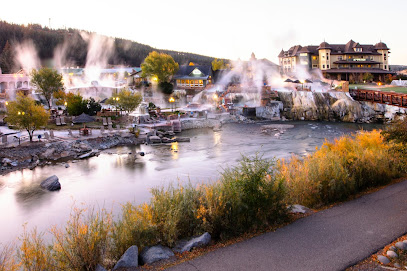
Mountain Pizza and Taproom
Discover the taste of Pagosa Springs at Mountain Pizza and Taproom, where delicious pizzas and local craft beers unite in a warm, welcoming atmosphere.
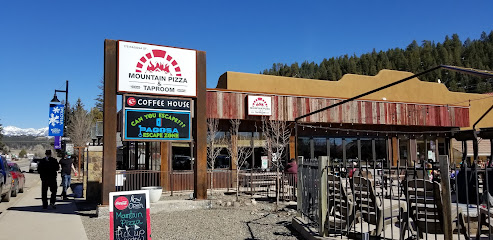
Kip's Grill
Discover the taste of the Rockies at Kip's Grill in Pagosa Springs, offering delicious grilled delights and a warm atmosphere for all diners.
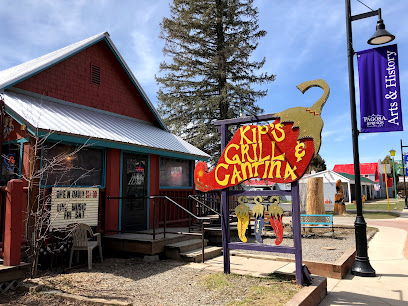
Riff Raff Brewing Company
Experience the best of local craft brews and delicious bites at Riff Raff Brewing Company in Pagosa Springs, a must-visit for every traveler.
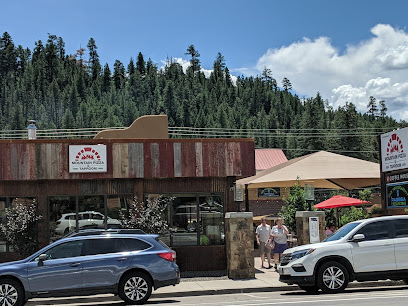
Two Chicks & A Hippie
Discover the delightful flavors of Two Chicks & A Hippie in Pagosa Springs, where breakfast meets charm in a cozy café atmosphere.
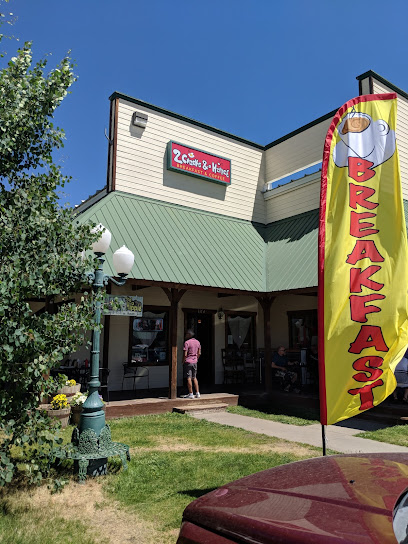
Riff Raff on the Rio
Discover Riff Raff on the Rio: A vibrant pub experience in Pagosa Springs, offering delicious food and an extensive drink selection in a welcoming atmosphere.
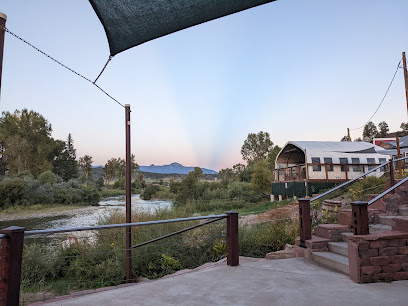
Higher Grounds Coffee
Discover the perfect blend of coffee, pastries, and community spirit at Higher Grounds Coffee in the scenic Pagosa Springs, Colorado.
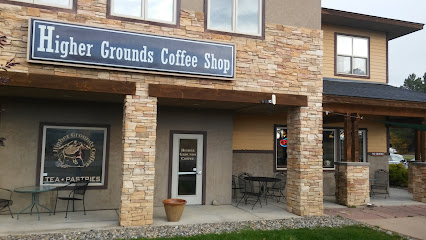
ROOT HOUSE coffee + shop
Discover ROOT HOUSE, a delightful coffee shop and boutique in Pagosa Springs offering artisanal brews, fresh pastries, and unique local goods.
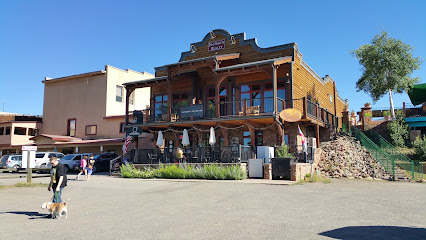
Cafe Colorado
Discover the charm of Cafe Colorado, a must-visit breakfast spot in Pagosa Springs, perfect for fueling your adventures in the stunning Colorado outdoors.
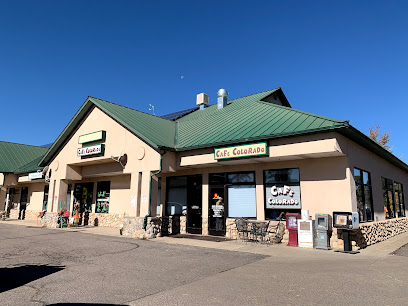
RiverWalk Inn
Experience the charm of RiverWalk Inn, a boutique hotel in Pagosa Springs, where comfort meets the natural beauty of Colorado's mountains.

Pagosa Springs Town Park
Explore Pagosa Springs Town Park - a serene escape with stunning views, recreational activities, and vibrant community events in the heart of Colorado.
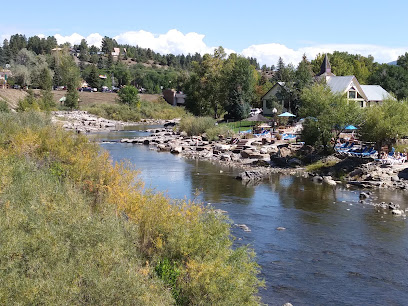
The Choke Cherry Tree
Explore the delightful world of gourmet chocolates and candies at The Choke Cherry Tree in Pagosa Springs, the sweetest spot for tourists and locals alike.
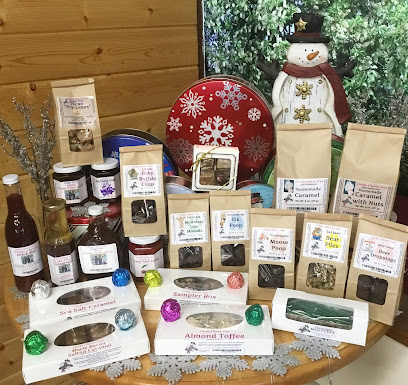
Healing Waters Resort & Spa
Discover ultimate relaxation and rejuvenation at Healing Waters Resort & Spa, where natural hot springs meet luxurious spa services in scenic Pagosa Springs.

The Break Room Brewing Company
Experience the best of craft beer culture at The Break Room Brewing Company, where delicious brews and tasty food meet in Pagosa Springs, Colorado.
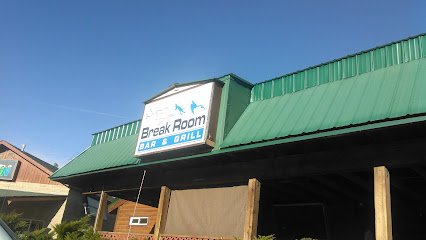
Rocky Mountain Wildlife Park
Discover the beauty of wildlife and nature at Rocky Mountain Wildlife Park in Pagosa Springs, Colorado, where adventure and education come together.
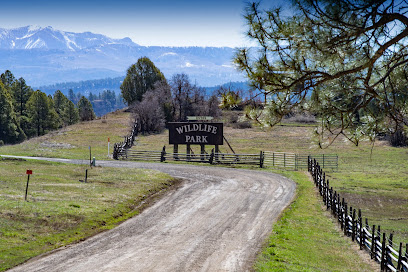
Unmissable attractions to see
Pagosa Springs Town Park
Discover a riverside escape in Pagosa Springs Town Park: recreation, community events, and natural beauty await!
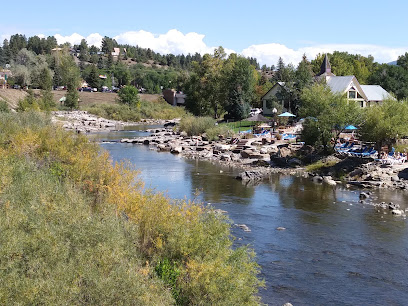
Rocky Mountain Wildlife Park
Discover Colorado's native wildlife in natural habitats at the Rocky Mountain Wildlife Park, a unique blend of conservation and art.
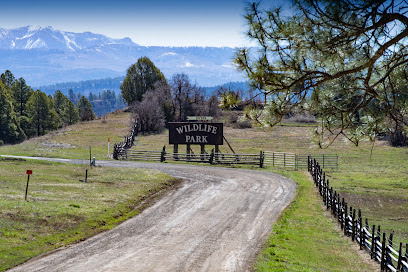
Overlook Hot Springs
Relax and rejuvenate in Pagosa Springs' historic Overlook Hot Springs, offering rooftop views and therapeutic mineral waters.
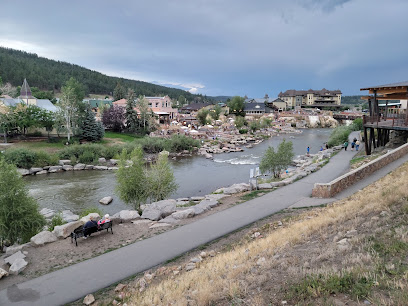
Pagosa Outside
Experience the best of the San Juan River with guided rafting, tubing, and kayaking adventures in Pagosa Springs, Colorado.
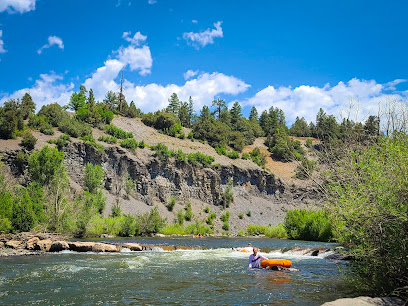
Yamaguchi Park
A vibrant Pagosa Springs park offering recreation & community events, honoring the Yamaguchi family's legacy.
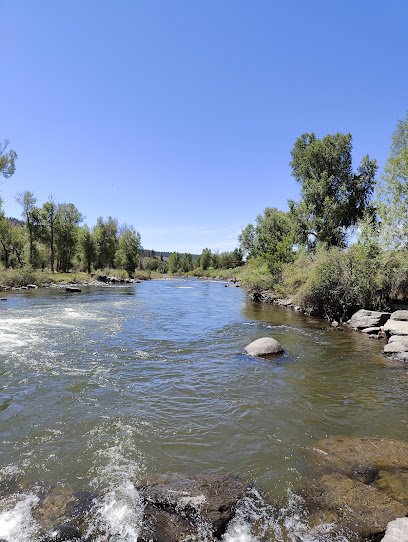
Nathan's Hippy Dip Hot Spring
Experience Pagosa Springs' natural geothermal waters for free at Nathan's Hippy Dip, a rustic hot spring along the San Juan River.
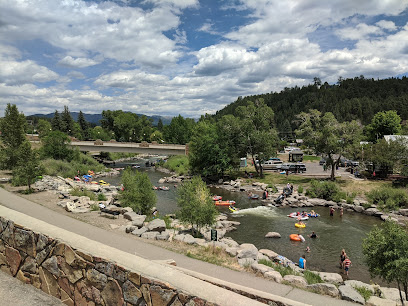
Reservoir Hill Park
Explore scenic trails, disc golf, and panoramic views at Reservoir Hill Park, a recreational haven in the heart of Pagosa Springs, Colorado.
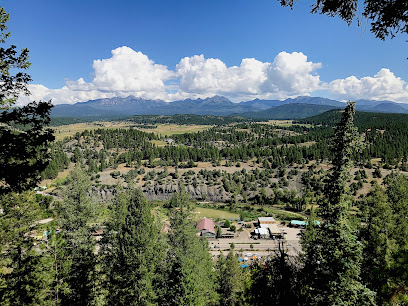
Pagosa Springs Area Visitor Center
Your adventure begins here! Maps, tips, and friendly advice for exploring Pagosa Springs and the San Juan Mountains.
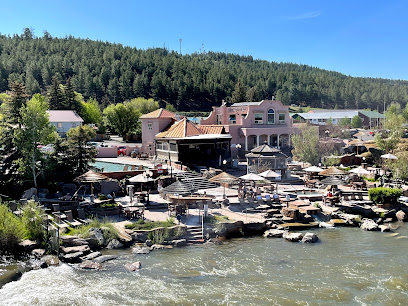
Centennial Park
Riverside park in Pagosa Springs offering walking trails, picnic spots, and the unique Geothermal Greenhouse Partnership.
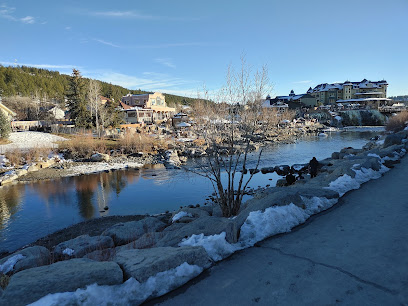
San Juan Historical Museum
Discover Pagosa Springs' heritage at the San Juan Historical Museum, showcasing life from the 1890s to the early 1900s.
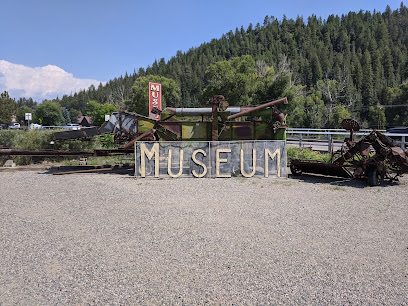
Rainbow Hot Springs
Escape to Rainbow Hot Springs: A secluded, clothing-optional natural hot spring in the Weminuche Wilderness near Pagosa Springs, Colorado.
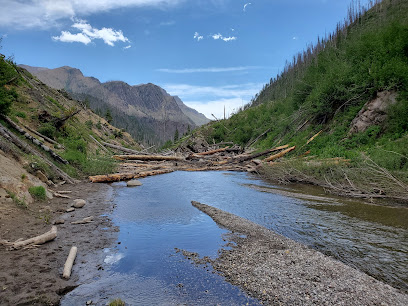
San Juan riverside free hot spring
Discover the healing waters of San Juan riverside hot springs in Pagosa Springs, a serene escape into nature's beauty and therapeutic warmth.
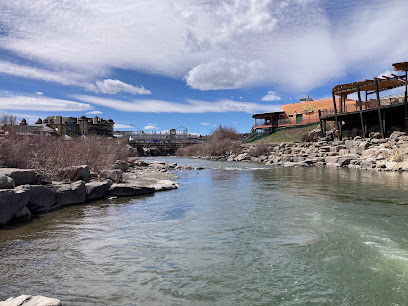
Worlds Deepest Geothermal Spring
Discover the legendary 'Mother Spring' in Pagosa Springs, home to the world's deepest geothermal hot spring, offering mineral-rich waters and therapeutic benefits.
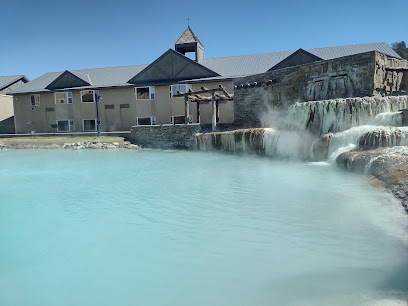
Whitewater Park
Experience thrilling rapids and scenic beauty at the Whitewater Park in downtown Pagosa Springs, Colorado. A refreshing adventure for all!
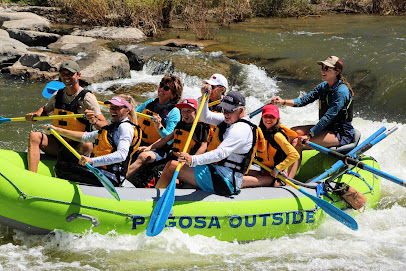
Pagosa Balloon Adventures
Experience the majesty of Pagosa Springs from above with a breathtaking hot air balloon adventure. Unforgettable views await!
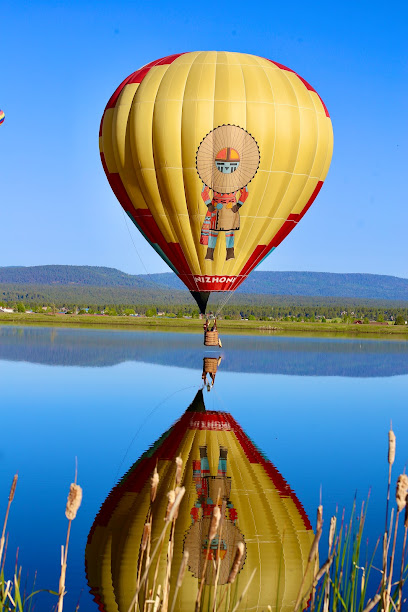
Essential places to dine
Mountain Pizza and Taproom
Discover unique pizza flavors paired with craft beers at Mountain Pizza and Taproom in scenic Pagosa Springs.
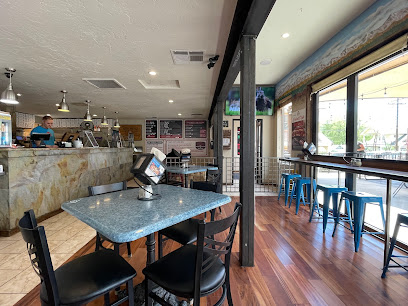
Kip's Grill
Discover the flavors of Colorado at Kip's Grill in Pagosa Springs - where unique grill dishes meet vibrant local culture.
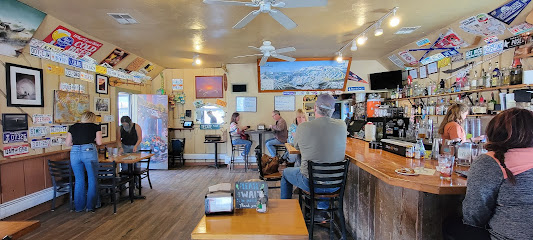
Boss Hogg's Restaurant & Saloon
Experience mouthwatering steaks in a rustic saloon setting at Boss Hogg's Restaurant & Saloon in Pagosa Springs.
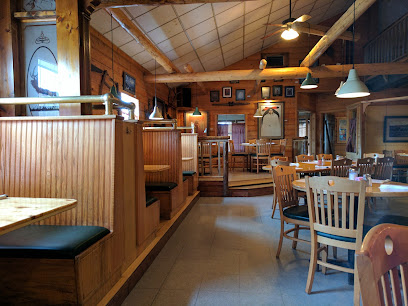
Riff Raff Brewing Company
Discover Riff Raff Brewing Company in Pagosa Springs - where craft beer meets delicious food in a welcoming brewpub atmosphere.
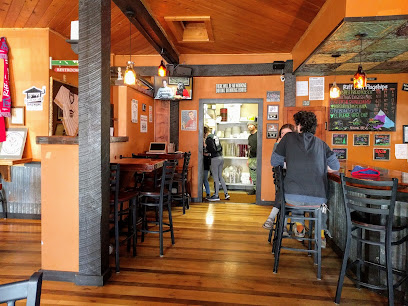
Two Chicks & A Hippie
Experience delightful breakfasts and fresh baked goods at Two Chicks & A Hippie in picturesque Pagosa Springs.
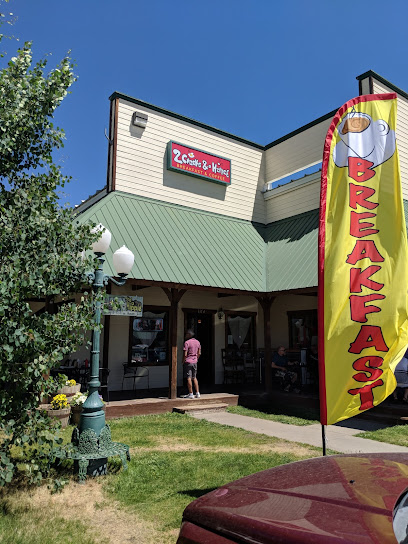
The Rose
Discover the charm of The Rose in Pagosa Springs - where delightful breakfasts meet friendly service at affordable prices.
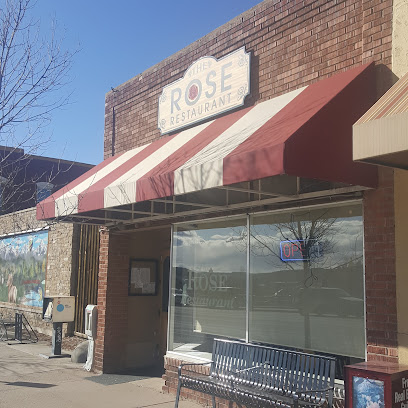
The Lost Cajun
Experience authentic Cajun flavors at The Lost Cajun in Pagosa Springs – where every bite tells a story.
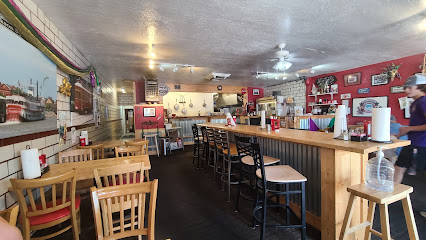
Alley House Grille
Experience exquisite New American cuisine at Alley House Grille in Pagosa Springs – where culinary creativity meets local flavors.
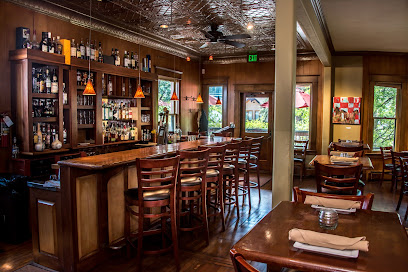
Riff Raff on the Rio
Discover Riff Raff on the Rio in Pagosa Springs: where delicious cuisine meets vibrant atmosphere amidst stunning Colorado landscapes.
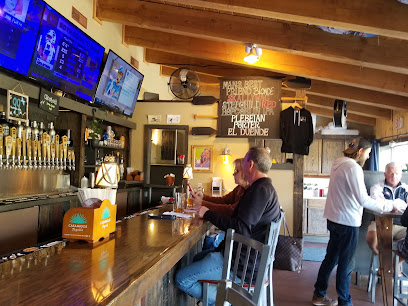
Rosie's Pizzeria
Discover the charm of authentic Italian cuisine at Rosie's Pizzeria – where every slice tells a story.
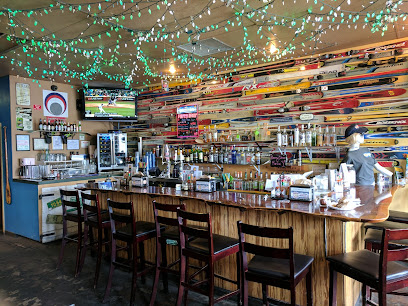
Chavolos Taqueria
Experience authentic Mexican flavors at Chavolos Taqueria in Pagosa Springs—where every dish is crafted with love and fresh ingredients.
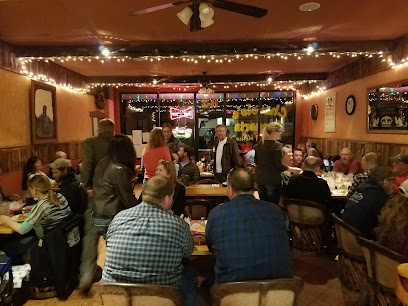
Malt Shoppe
Savor delicious burgers, fast food favorites, and irresistible ice cream at the Malt Shoppe in Pagosa Springs – a nostalgic American dining experience.
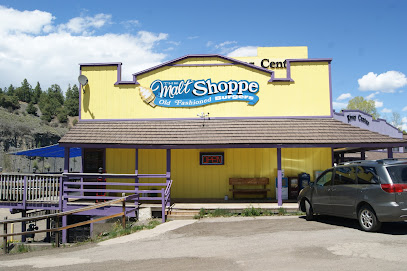
Ramon's Mexican Restaurant
Experience the vibrant flavors of Mexico at Ramon's Mexican Restaurant in Pagosa Springs – where every meal is a celebration!
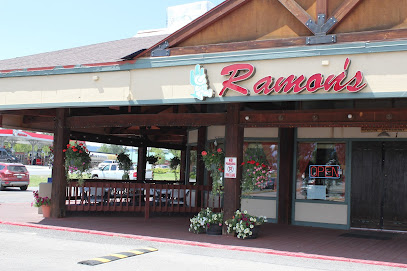
Tequila's Pagosa
Experience authentic Mexican flavors at Tequila's Pagosa in beautiful Pagosa Springs - where every meal is a celebration!
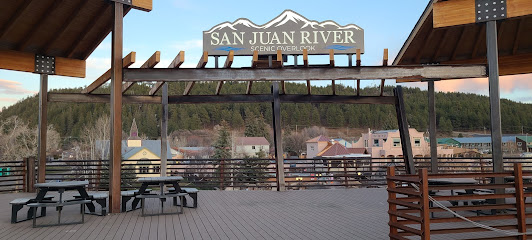
Junction Restaurant
Experience the best of American comfort food at Junction Restaurant in Pagosa Springs - perfect for families and breakfast enthusiasts alike!
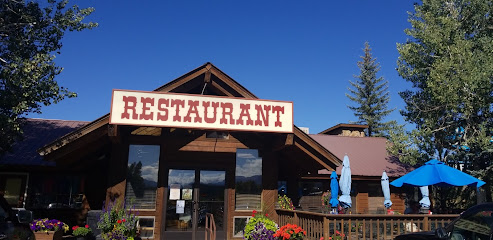
Markets, malls and hidden boutiques
The Choke Cherry Tree
Explore The Choke Cherry Tree, a charming novelty store in Pagosa Springs, offering artisanal candies, chocolates, and gourmet treats for every sweet tooth.
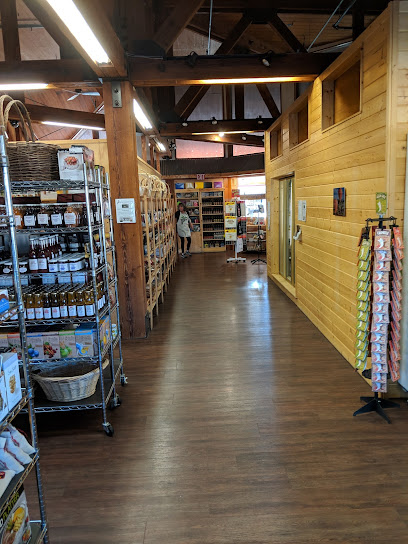
Rainbow Gift Shop
Explore a treasure trove of unique gifts, handmade jewelry, and local artistry at Rainbow Gift Shop in Pagosa Springs, Colorado.
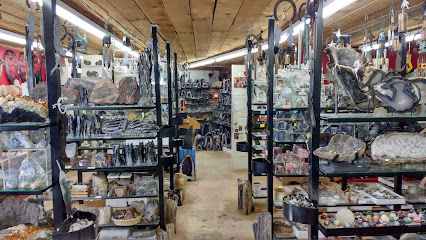
Made in Colorado Shoppe
Explore the heart of Colorado craftsmanship at Made in Colorado Shoppe, where every gift tells a story of local artistry and culture.
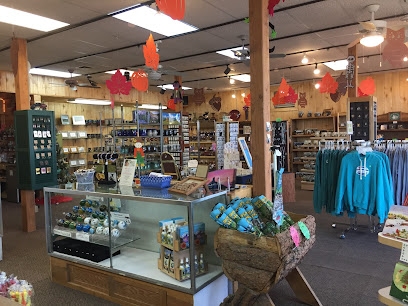
Goodman's Department Store
Discover the charm of Pagosa Springs at Goodman's Department Store, where local history meets a diverse selection of unique gifts and essentials.
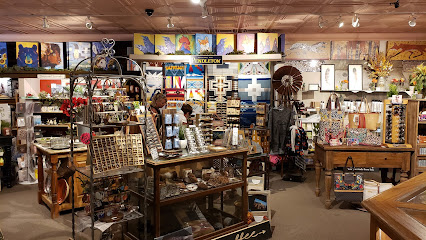
The River Center
Explore The River Center in Pagosa Springs for unique local gifts and a delightful shopping experience amidst stunning Colorado scenery.

Lantern Dancer Native American & Southwestern Jewelry
Explore authentic Native American jewelry and Southwestern apparel at Lantern Dancer in Pagosa Springs, Colorado, where culture meets craftsmanship.
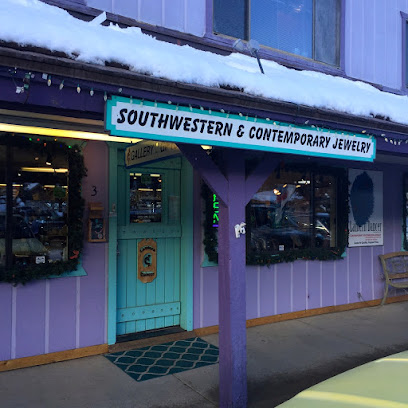
Antiques on Main LLC
Explore a treasure trove of antiques and collectibles at Antiques on Main LLC in Pagosa Springs, where each item tells a unique story.
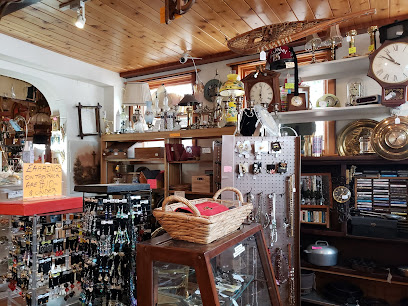
Funky Trunk Inc
Explore Funky Trunk Inc in Pagosa Springs, where unique gifts, boutique fashion, and local treasures await every traveler.
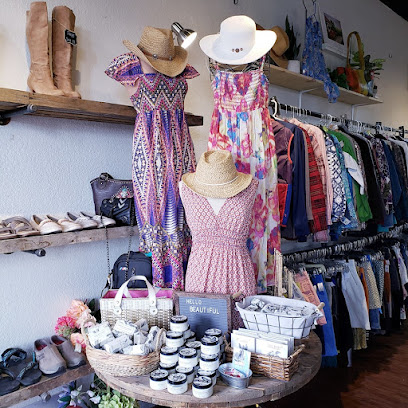
Memory Lane
Explore unique antiques at Memory Lane, Pagosa Springs' premier destination for vintage treasures and nostalgic finds.
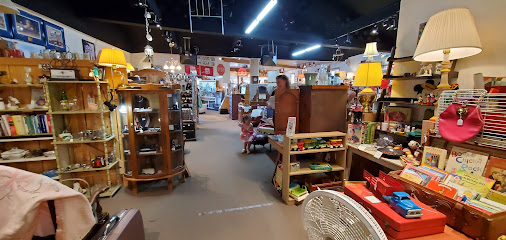
Methodist Thrift Store
Discover unique treasures and support local charities at the Methodist Thrift Store in Pagosa Springs, where sustainability meets affordability.
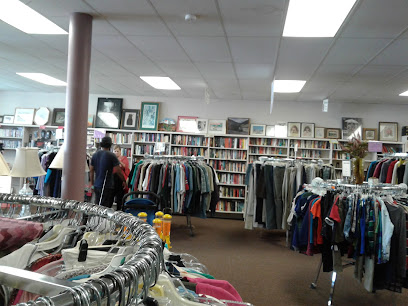
Wolf Creek Gift Shop
Explore Wolf Creek Gift Shop in Pagosa Springs for unique gifts and local artisan crafts that embody the charm of Colorado.
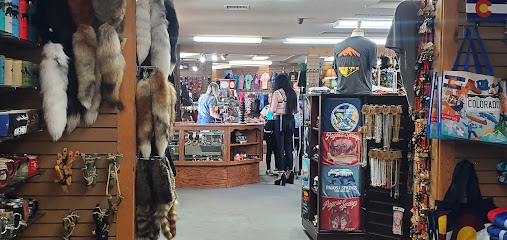
The Emerald Fox Boutique
Explore The Emerald Fox Boutique in Pagosa Springs for unique clothing and accessories for the whole family, celebrating local charm and style.
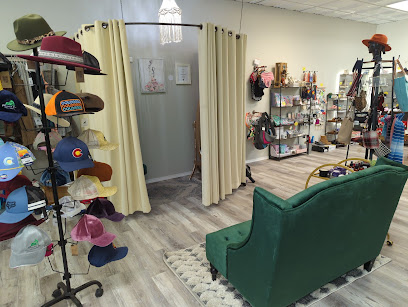
Feather Your Nest Antiques
Explore Feather Your Nest Antiques in Pagosa Springs for unique collectibles, vintage furniture, and charming gifts that capture the spirit of Colorado.
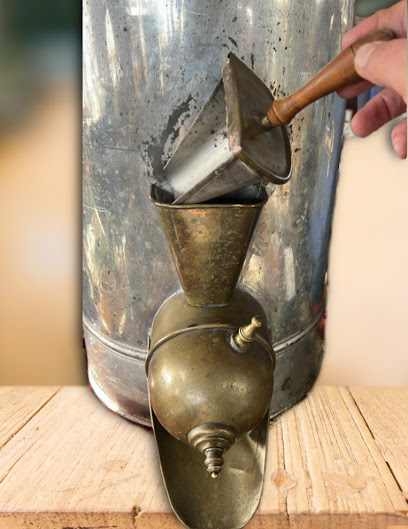
PS CHOCOLATES
Discover a sweet escape at PS Chocolates in Pagosa Springs, where luxurious handmade chocolates and fine wines await every visitor.
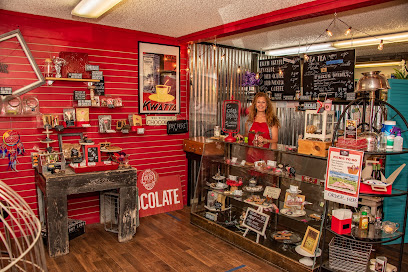
Higher Altitude Pagosa
Explore Higher Altitude Pagosa in Pagosa Springs for adventure gear, stylish clothing, and unique jewelry that captures the essence of Colorado's outdoor spirit.
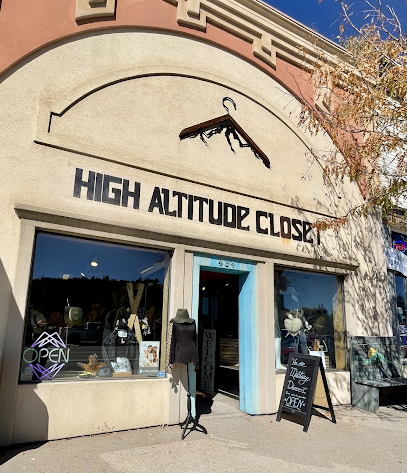
Essential bars & hidden hideouts
Kip's Grill
Discover Kip's Grill in Pagosa Springs, where delicious street tacos and a vibrant atmosphere await your taste buds in the heart of Colorado.
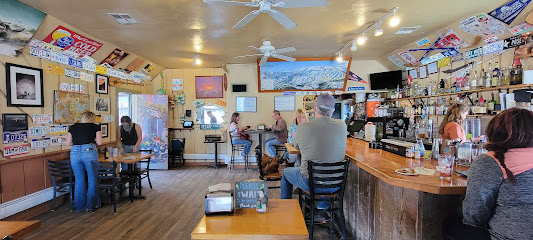
Boss Hogg's Restaurant & Saloon
Experience the essence of the Wild West at Boss Hogg's Restaurant & Saloon, where steak lovers unite in a charming rustic atmosphere.
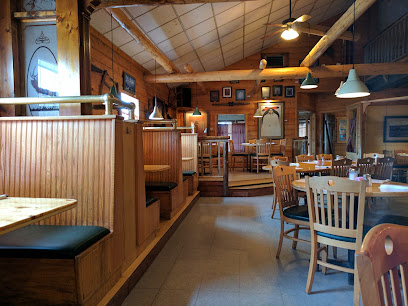
Riff Raff Brewing Company
Discover the heart of Pagosa Springs at Riff Raff Brewing Company, where craft beer meets delicious cuisine in a cozy atmosphere.
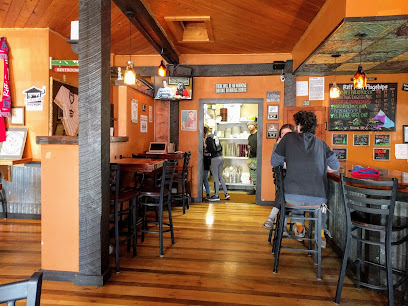
Alley House Grille
Experience the flavors of Colorado at Alley House Grille, a New American restaurant in Pagosa Springs known for its exquisite cuisine and welcoming atmosphere.
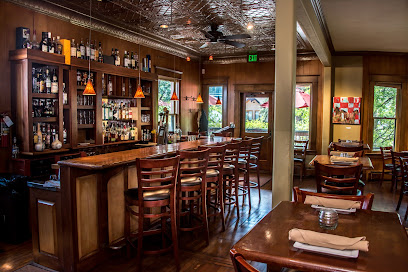
Riff Raff on the Rio
Experience the vibrant atmosphere and local flavors at Riff Raff on the Rio, the perfect pub-restaurant in Pagosa Springs, Colorado.
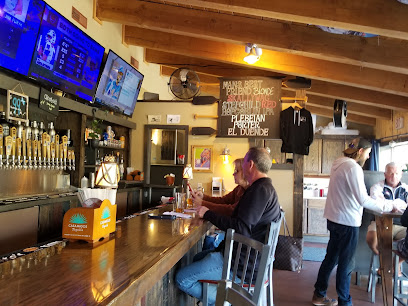
Colorado Roadhouse
Experience the essence of Colorado at Colorado Roadhouse, where local flavors meet warm hospitality in Pagosa Springs.
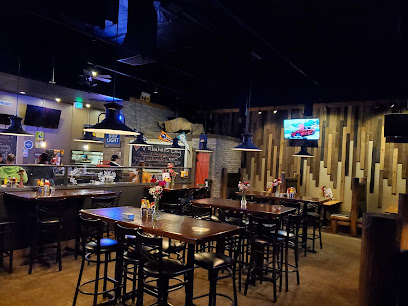
Coyote Moon Lounge
Experience the lively atmosphere of Coyote Moon Lounge in Pagosa Springs, offering delicious food, live music, and unforgettable karaoke nights.
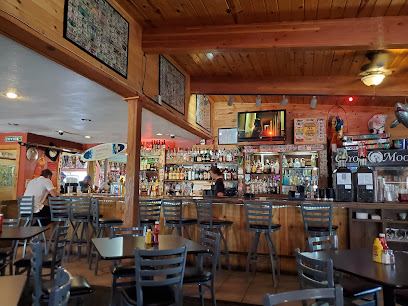
The Break Room Brewing Company
Discover the charm of The Break Room Brewing Company, where craft beer meets local culture in the heart of Pagosa Springs, Colorado.
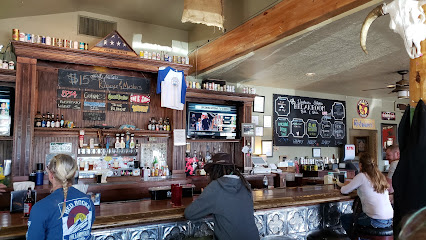
City Hall Cafe and Grille
Discover the culinary charm of City Hall Cafe and Grille in Pagosa Springs, where local flavors and a warm atmosphere create a memorable dining experience.
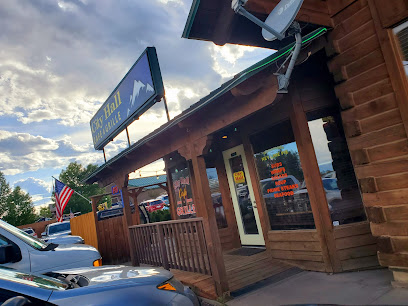
Pagosa Bar
Explore the lively Pagosa Bar in Pagosa Springs - a vibrant spot for craft beers, cocktails, and unforgettable nights out in the heart of Colorado.
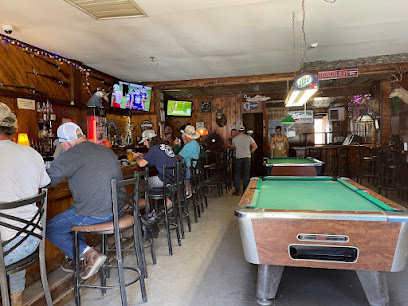
Beny's Authentic Mexican Restaurant and Bar
Discover the vibrant tastes of Mexico at Beny's Authentic Mexican Restaurant and Bar in beautiful Pagosa Springs, Colorado.
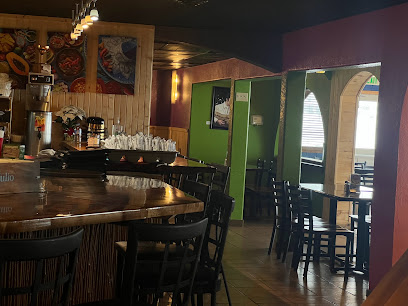
Neon Mallard
Discover Neon Mallard, a speakeasy-style bar in Pagosa Springs offering unique cocktails and a vibrant atmosphere for the perfect night out.
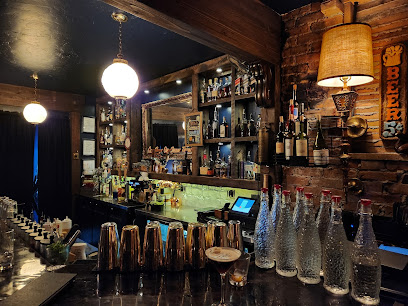
Meander Riverside Eatery
Experience the best of New American cuisine at Meander Riverside Eatery, where local ingredients meet creativity in a stunning riverside setting.
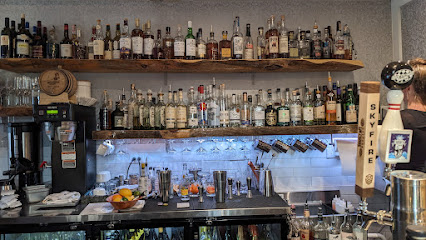
The Den
Experience the vibrant atmosphere of The Den, a beloved bar in Pagosa Springs, offering craft drinks and delicious bites amidst Colorado's stunning landscapes.
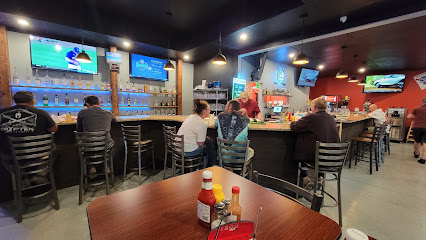
Local Phrases
-
- HelloHowdy
[haʊ-di] - GoodbyeSee ya
[siː jə] - YesYep
[jɛp] - NoNope
[nəʊp] - Please/You're welcomePlease n' thank ya
[pliːz n θæŋk jə] - Thank youThanks a bunch
[θæŋks ə bʌntʃ] - Excuse me/SorryPardon me
[pɑrdən mi] - How are you?Howdy, how ya doin'?
[haʊ-di, haʊ jə ˈduɪn] - Fine. And you?Good. How 'bout you?
[ɡʊd. haʊ ˈbaʊt jə] - Do you speak English?Ya speak English?
[jə spiːk ˈɪŋɡlɪʃ] - I don't understandI'm plum confused
[aɪm plʌm kənˈfjuzd]
- HelloHowdy
-
- I'd like to see the menu, pleaseMind if I take a gander at the menu?
[maɪnd ɪf aɪ teɪk ə ˈɡændər ət ðə ˈmɛnjuː] - I don't eat meatI'm a veg-head
[aɪm ə vɛdʒ-hɛd] - Cheers!Bottoms up!
[ˈbɑtəmz ʌp] - I would like to pay, pleaseI reckon it's time to settle up
[aɪ ˈrɛkən ɪts taɪm tə ˈsɛtəl ʌp]
- I'd like to see the menu, pleaseMind if I take a gander at the menu?
-
- Help!Send aid!
[sɛnd eɪd] - Go away!Git!
[ɡɪt] - Call the Police!Ring up the Sheriff!
[rɪŋ ʌp ðə ˈʃɛrɪf] - Call a doctor!Fetch a doc!
[fɛʧ ə dɑk] - I'm lostI reckon I'm turned around
[aɪ ˈrɛkən aɪm tɜrnd əˈraʊnd] - I'm illI'm feelin' poorly
[aɪm ˈfilɪn ˈpʊrli]
- Help!Send aid!
-
- I'd like to buy...Fixin' to purchase...
[ˈfɪksɪn tə ˈpɜrtʃəs] - I'm just lookingJust browsin'
[dʒʌst ˈbraʊzɪn] - How much is it?What's the damage?
[wɑts ðə ˈdæmɪdʒ] - That's too expensiveThat's a mite spendy
[ðæts ə maɪt ˈspɛndi] - Can you lower the price?How 'bout a deal?
[haʊ ˈbaʊt ə dil]
- I'd like to buy...Fixin' to purchase...
-
- What time is it?What's the time o' day?
[wɑts ðə taɪm oʊ deɪ] - It's one o'clockIt's high noon
[ɪts haɪ nun] - Half past (10)Ten-thirty
[tɛn-ˈθɜrti] - MorningMornin'
[ˈmɔrnɪn] - AfternoonAfternoon
[ˌæftərˈnun] - EveningEvenin'
[ˈivnɪn] - YesterdayYest'day
[ˈjɛstˌdeɪ] - TodayToday
[təˈdeɪ] - TomorrowMorrow
[ˈmɔroʊ] - 1One
[wʌn] - 2Two
[tuː] - 3Three
[θriː] - 4Four
[fɔːr] - 5Five
[faɪv] - 6Six
[sɪks] - 7Seven
[ˈsɛvən] - 8Eight
[eɪt] - 9Nine
[naɪn] - 10Ten
[tɛn]
- What time is it?What's the time o' day?
-
- Where's a/the...?Where's the...
[wɛərz ðə] - What's the address?Where's it located?
[wɛərz ɪt ˈloʊˌkeɪtɪd] - Can you show me (on the map)?Mind pointin' it out?
[maɪnd ˈpɔɪntɪn ɪt aʊt] - When's the next (bus)?When's the next one comin'?
[wɛnz ðə nɛkst wʌn ˈkʌmɪn] - A ticket (to ....)A pass (to ....)
[ə pæs (tu ....)]
- Where's a/the...?Where's the...
History of Pagosa Springs
-
Long before the arrival of European settlers, the area that is now Pagosa Springs was inhabited by the Ancestral Puebloans. These indigenous people built intricate dwellings, cultivated crops, and developed a sophisticated culture. Evidence of their presence can still be found in the petroglyphs and ruins scattered throughout the region.
-
The Ute Tribe, known as the 'People of the Shining Mountains,' have a long-standing connection with the Pagosa Springs area. They were the region's primary inhabitants by the time European explorers arrived. The Utes utilized the hot springs for their healing properties and held the area as sacred. This deep-rooted history still resonates in the cultural fabric of Pagosa Springs today.
-
In the late 18th century, Spanish explorers ventured into the Southwest in search of new territories. The Dominguez-Escalante Expedition of 1776 marked one of the earliest European contacts with the region. These explorers documented the hot springs and the surrounding landscape, paving the way for future exploration and settlement.
-
In 1878, the U.S. government established Fort Lewis near Pagosa Springs to protect settlers from potential conflicts with Native American tribes. The fort was strategically located to oversee the San Juan Basin and served as a key military post during the Indian Wars. Although the fort was eventually relocated to Hesperus, Colorado, its initial presence marked a significant period in the area's development.
-
Pagosa Springs was officially founded in 1878, coinciding with the establishment of Fort Lewis. The town's name is derived from the Ute word 'Pagosah,' meaning 'healing waters,' a nod to the natural hot springs that have been a central feature of the area for centuries. The town quickly grew as settlers were drawn to the therapeutic properties of the springs and the promise of new opportunities.
-
The Denver & Rio Grande Western Railroad reached Pagosa Springs in 1900, significantly boosting the town's economy and accessibility. The railroad facilitated the transport of lumber, livestock, and agricultural products, contributing to the area's growth and development. It also made Pagosa Springs a more accessible destination for tourists seeking the rejuvenating hot springs.
-
In the early 20th century, Pagosa Springs experienced a boom in the lumber industry. The surrounding forests provided a plentiful supply of timber, attracting logging companies and workers to the area. Sawmills and logging camps became common sights, shaping the economic landscape of the town. Although the industry has since declined, its legacy remains a part of Pagosa Springs' history.
-
Today, Pagosa Springs is renowned for its natural beauty, outdoor recreational opportunities, and, of course, its famous hot springs. The town has evolved into a vibrant community that honors its rich history while embracing modern amenities. Visitors can explore historic sites, enjoy the therapeutic waters, and immerse themselves in the unique culture that defines Pagosa Springs.
Pagosa Springs Essentials
-
Pagosa Springs is located in southwestern Colorado. The nearest major airport is Durango-La Plata County Airport (DRO), approximately 60 miles away. From the airport, you can rent a car or take a shuttle service to Pagosa Springs, which typically takes about 1.5 hours by road. Alternatively, Albuquerque International Sunport (ABQ) in New Mexico is about 200 miles away and offers more flight options. For those driving, Pagosa Springs is accessible via U.S. Highway 160.
-
Pagosa Springs is a small town, and many attractions are within walking distance. For longer trips, local taxis and rideshare services are available. Public transportation is limited, so renting a car is advisable for exploring the surrounding areas, including the San Juan National Forest and nearby hot springs.
-
The official currency is the United States Dollar (USD). Credit cards are widely accepted in most hotels, restaurants, and shops. ATMs are available throughout the town for cash withdrawals. It is a good idea to carry some cash for smaller establishments and tips.
-
Pagosa Springs is generally a safe destination for tourists. However, as with any travel destination, it is wise to take standard precautions. Avoid walking alone late at night in remote areas and keep an eye on your belongings in crowded places. There are no specific high-crime areas targeting tourists, but it is always best to stay vigilant and aware of your surroundings.
-
In case of emergency, dial 911 for immediate assistance. The local police station and medical facilities, including Pagosa Springs Medical Center, are available to assist with emergencies. It is recommended to have travel insurance that covers medical emergencies. For minor health issues, there are pharmacies in town where you can purchase over-the-counter medications.
-
Fashion: Do dress in layers, as weather can change rapidly. Comfortable walking shoes are a must. Don’t wear overly revealing clothing, especially when visiting religious or historically significant sites. Religion: Do respect local customs and traditions. Avoid loud behavior in places of worship. Public Transport: Do be courteous to drivers and fellow passengers. Don’t expect extensive public transit options. Greetings: Do greet people with a friendly smile and a handshake. Don’t be overly formal. Eating & Drinking: Do try local delicacies and hot springs' mineral water. Don’t leave a tip below 15% in restaurants, as it is considered impolite.
-
To experience Pagosa Springs like a local, visit the weekly farmers' market during the summer for fresh produce and local crafts. Engage with locals at coffee shops and breweries, where you can hear stories about the town’s history and culture. Don’t miss the hot springs, which are a central part of local life. For a unique experience, hike to Treasure Falls or take a scenic drive along the San Juan Skyway for breathtaking views.
Trending Landmark in Pagosa Springs
-
The Springs Resort & Spa
-
Mountain Pizza and Taproom
-
Kip's Grill
-
Riff Raff Brewing Company
-
Two Chicks & A Hippie
-
Riff Raff on the Rio
-
Higher Grounds Coffee
-
ROOT HOUSE coffee + shop
-
Cafe Colorado
-
RiverWalk Inn
-
Pagosa Springs Town Park
-
The Choke Cherry Tree
-
Healing Waters Resort & Spa
-
The Break Room Brewing Company
-
Rocky Mountain Wildlife Park
Nearby Cities to Pagosa Springs
-
Things To Do in Durango
-
Things To Do in Ouray
-
Things To Do in Alamosa
-
Things To Do in Farmington
-
Things To Do in Gunnison
-
Things To Do in Montrose
-
Things To Do in Taos
-
Things To Do in Salida
-
Things To Do in Los Alamos
-
Things To Do in Crested Butte
-
Things To Do in Santa Fe
-
Things To Do in Sante Fe
-
Things To Do in Canon City
-
Things To Do in Aspen
-
Things To Do in Blanding












